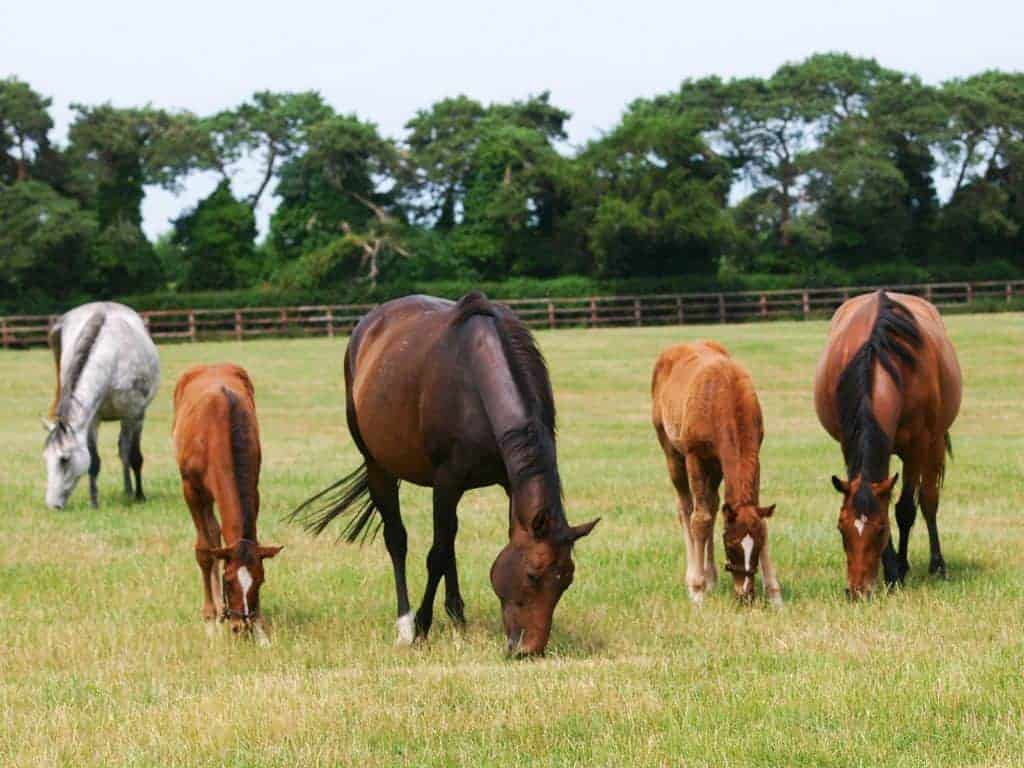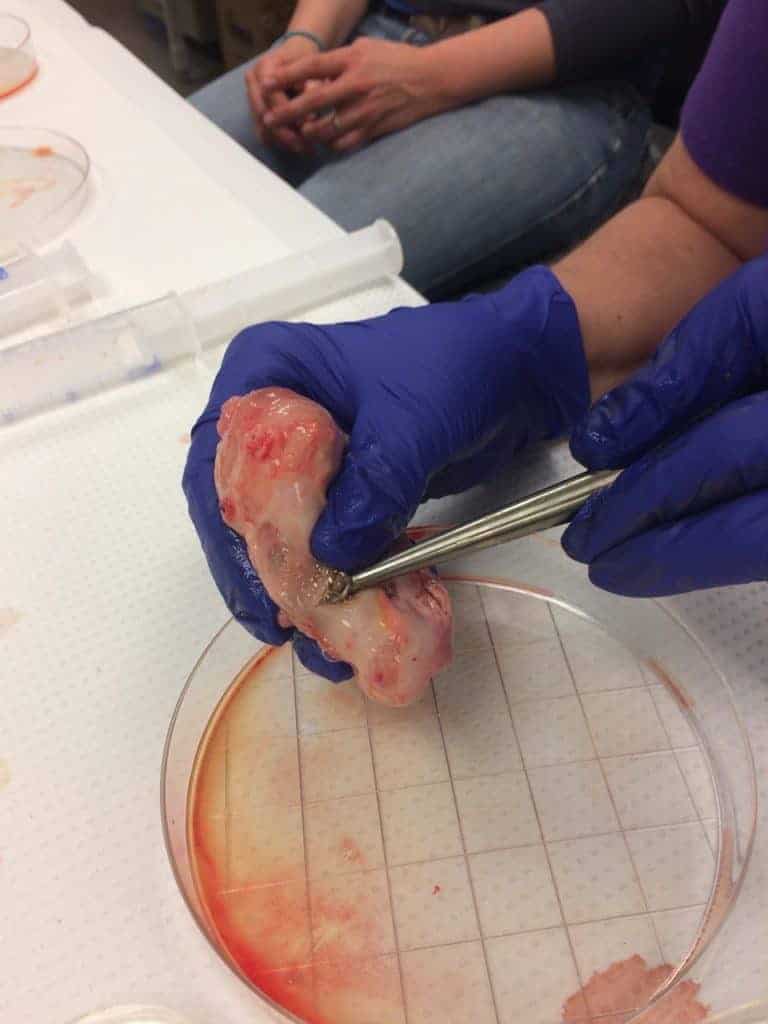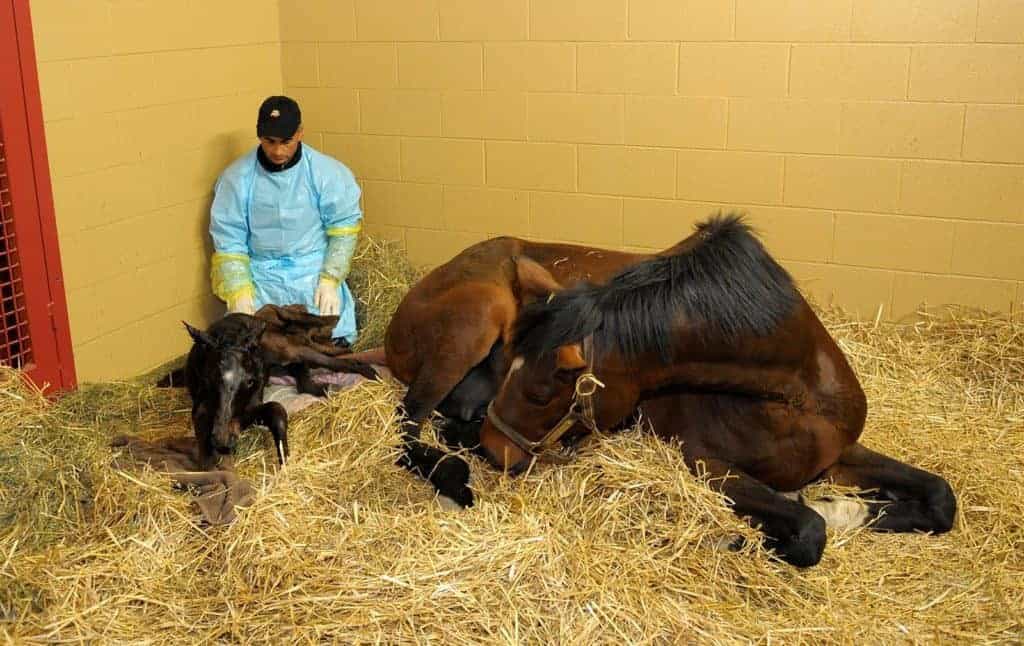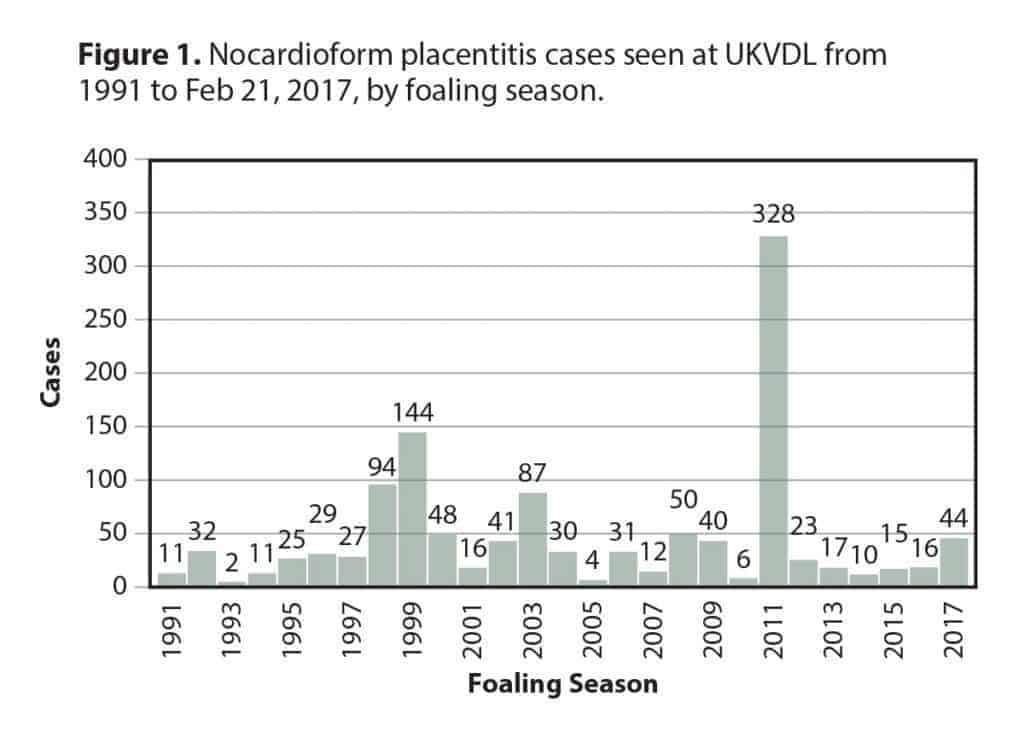
Equine Vaccination: What, When, and Why?
Dr. David Horohov, UK Gluck Equine Research Center director, gives a overview of vaccines and explains their importance.
Horse breeding from planning through foal care

Dr. David Horohov, UK Gluck Equine Research Center director, gives a overview of vaccines and explains their importance.

The mainstays of biosecurity still center around good hygiene, diagnostics, quarantine, isolation, and traffic control.

One veterinarian describes how to use endometrial culture, cytology, and biopsy to evaluate subbertile mares.

Overweight mares often produce heavier foals, which studies have shown are at-risk for musculoskeletal disorders.

Researchers discuss equine rotavirus infection in foals, bacterial upper airway infections, and more.

Persistent uterine lining inflammation in horses can lead to lower pregnancy rates and increased early embryonic losses.

Take an up-close look at common internal parasites and the damage they can do to your horse. Also learn about parasite resistance and the drugs and management methods that can help control certain worms.

Traditionally when a mare died, her gene pool often went with her. This isn’t always the case these days, however.

Neonatal medicine is an important area of equine practice, because time is of the essence when youngsters are sick.

Prefoaling secretions have a pH of 8.0 to 8.5 which decreases to 6.5 or lower as foaling approaches, researchers found.

Learn whether your horse is at risk and if you should be vaccinating for this “new” disease.

Through the third week of February, 44 cases of nocardioform placentitis were confirmed in the 2017 Kentucky foal crop.

How young horses are fed and housed can impact how osteochondral lesions evolve, and even help them heal.

There have been no new EHV cases reported since April 4, when one Anne Arundel County horse tested positive.

Digestive system and cardiovascular system problems were the most common causes of death in the study population.
Confirmed diseases include equine herpesvirus, West Nile virus, African horse sickness, strangles, influenza, and more.
Stay on top of the most recent Horse Health news with
"*" indicates required fields